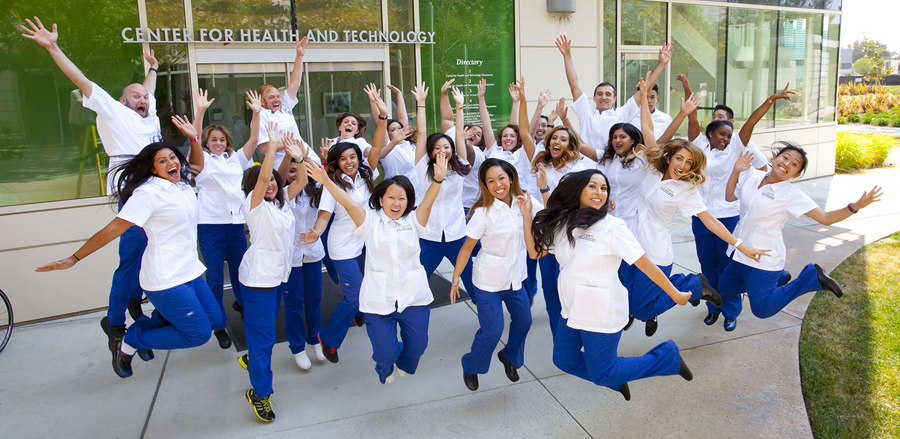Master’s Entry Program in Nursing goals and outcomes

Master's Entry Program in Nursing goals
- Integrate scientific findings from the liberal arts and the natural and behavioral sciences in their nursing practice.
- Provide evidence-based, innovative, person-centered care, with diverse populations, across a wide range of settings, utilizing leadership, clinical reasoning, technology, an appreciation for cultural and social differences and health literacy.
- Influence policy development through the implementation of strategies designed to promote social justice and promote equity in health and health care.
- Communicate and collaborate effectively as a member of the health care team to deliver, integrate, coordinate and evaluate care for diverse individuals, families, communities and populations.
- Improve health care quality, value and access through the utilization of evidence-based quality improvement methods, informatics and by implementing evidence-based practice changes.
- Apply leadership skills, stewardship and ethical decision making to promote high quality, accessible and safe patient care across a wide range of settings.
- Participate in population-based health promotion and disease prevention strategies with diverse individuals, families, communities and populations.
- Demonstrate a commitment to life-long learning and continuous professional development in addressing the needs of diverse individuals, families, communities and populations in an ever-evolving health care system.
Expected aggregate student outcomes
The five, primary expected aggregate student outcomes for the Master of Science in Nursing Degree Program are shown below. Click on an outcome to learn more.
Goal: At least 80% of Master’s Entry Program in Nursing (MEPN) students will graduate on time.
Faculty and staff are committed to helping all students finish successfully. Since the start of the program, this goal has been met. Completion rates are available through the California Board of Registered Nursing.
Goal: 90% of MEPN graduates will pass the National Council Licensure Examination - Registered Nurse (NCLEX-RN) on the first attempt, in alignment with the national average.
The 3-year average first-time pass rate is 91.5%, with an eventual pass rate of 99%. Annual NCLEX rates are available through the California Board of Registered Nursing.
Goal: MEPN students will be satisfied (average score of 3.5 on a 5-point Likert scale) with their education program as measured by the end-of-program survey.
Program satisfaction is high. Satisfaction scores across the past three MEPN graduating classes averaged 4.23.
Goal: 90% of MEPN graduates will find employment in a health care setting.
The program meets this goal with 94% of MEPN graduates from the past three years reporting employment in a health care setting within a year of program completion.
Goal: 100% of MEPN graduates will demonstrate competency through their culminating experience.
To date, 100% of graduates have demonstrated competency through their culminating experience.





